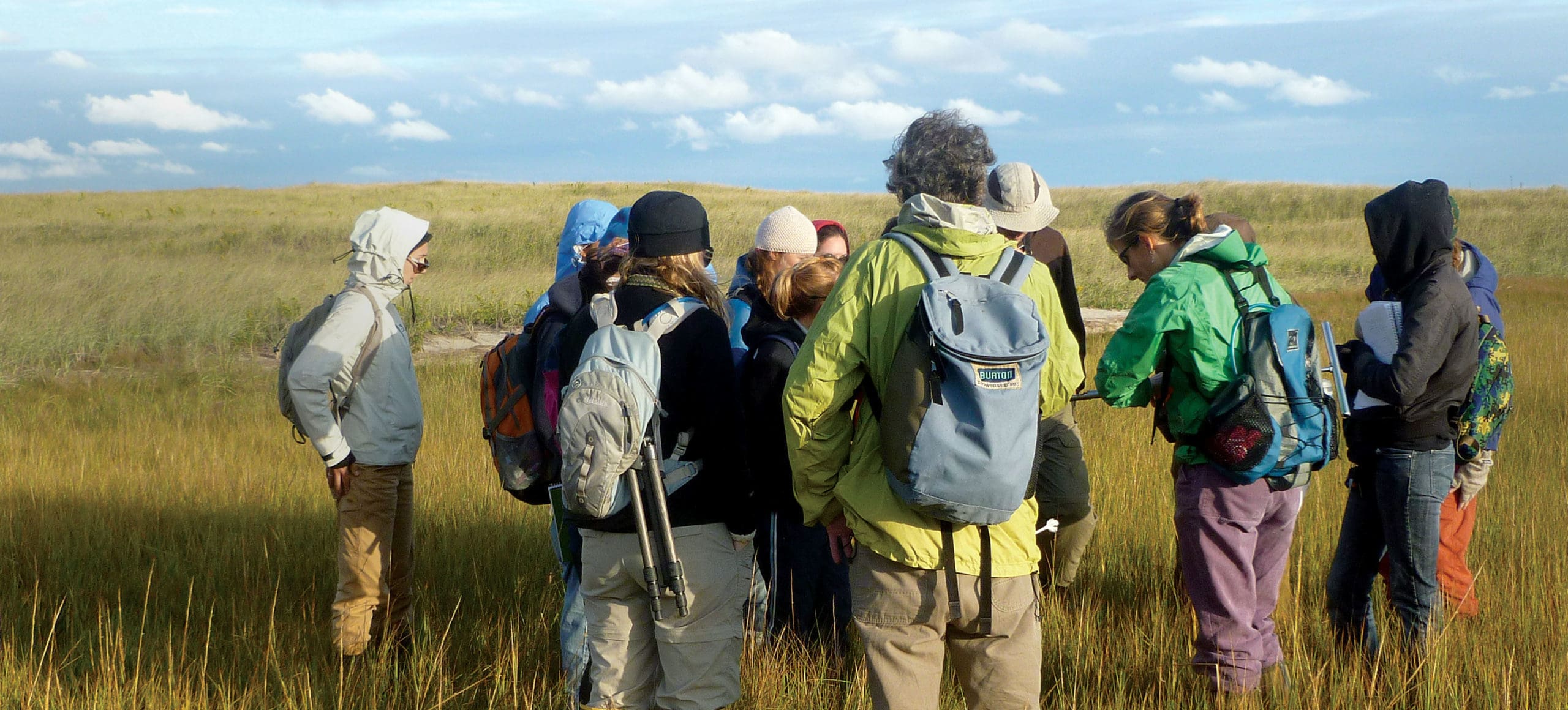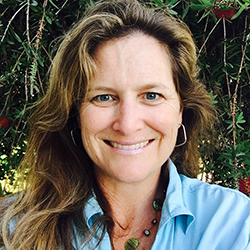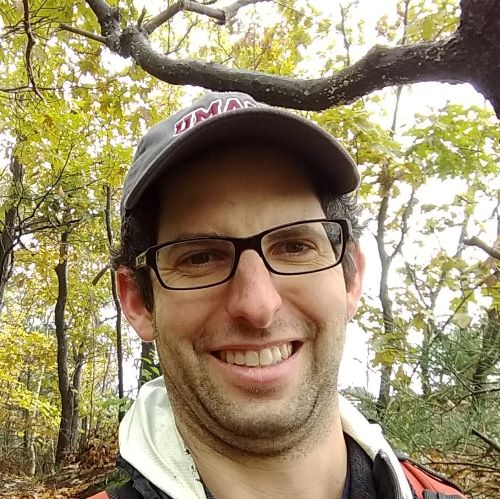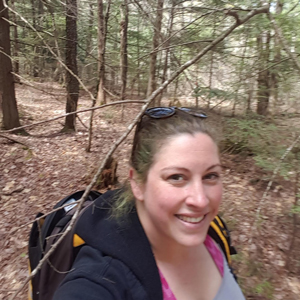Certificate
Certificate in Conservation Psychology
Understand the perceptions and challenges facing conservation.
Integrate conservation psychology to strengthen your work in conserving biodiversity, promoting sustainability, and developing effective environmental communication and education programs. This emerging interdisciplinary field promotes a scientific approach to understanding how environmental advocates can skillfully and effectively communicate important information with the public. Human attitudes, behaviors, and values toward sustainability can vary greatly, and it’s important to understand the diverse perspectives that different subcultures have toward environmental stewardship.
Antioch’s New England campus offers this degree, available online and in person.


"I have always been drawn to nature in a way that was beyond recreation....the connection was always spiritual. By the time I was in high school, I was ready to devote myself to her protection as a career," she says. "[We need] to center the voices, needs, and experiences of Black, Indigenous, and other People of Color in the environmental movement....I’d like to permanently flip the paradigm of what it means to do environmental work in this country."
Nia Keith ’09
Vice President for Diversity, Equity, Inclusion, and Justice (DEIJ), Mass Audubon
Try Us Out
Wondering if Antioch ES MS is right for you? Prospective students can earn up to three credits in a semester at a highly reduced rate. These credits are transferable into the ESMS degree.
Program Overview
Conservation Psychology is an emerging interdisciplinary field that promotes a scientific approach to understanding the reciprocal relationships of human beings with one another and the more than human world with the explicit aim of enhancing environmental and biodiversity conservation. Through coursework, this certificate introduces students and practitioners to conservation psychology approaches and tools; builds current knowledge and skills in the arenas of conservation biology or climate and environmental science research; and offers a range of opportunities to integrate conservation psychology learning through applied skills in communication, cultural competence or program evaluation. The certificate is ideal for people whose environmental and conservation science work requires additional skills to engage effectively in communicating with the public; for environmental education and advocacy practitioners who want to enhance their program and campaign development approaches; and as an introduction to social research for those whose research programs or questions engage them with human attitudes, values, and behavior.
Degree Requirements
Requirements
The Environmental Studies Department offers this 9-credit certificate to matriculated and non-matriculated students. Matriculated students who fulfill the requirements of a certificate will earn a dual credential along with their Master of Science. We believe that each of these certificates will add tremendous value to our students’ professional development and career opportunities. Students complete the required courses from the Environmental Studies MS curriculum.

Meaghan L. Guckian, PhD
Director, Climate Change Education Certificate, Certificate in Conservation Psychology
Environmental Studies & Sustainability
Centers and Resources
Additional Information
Yes, you can complete this certificate entirely online. These courses are synchronous and, in some cases, asynchronous. Virtual synchronous course class sessions are offered one evening during the week (Monday-Thursday evenings, ET) and on weekends. You can also choose to take courses with us in person, including field-based courses and campus-based intensives.
The certificate can be completed within 32 weeks. Conservation Psychology certificate courses meet one day/week or as intensives, aligned with our current Environmental Studies’ delivery models.
Graduates of our programs are employed in many sectors of environmental work, from private consulting and regulatory enforcement to conservation institutions, formal and informal educational settings, government agencies, advocacy organizations, and the arts.
Faculty Spotlights

Dawn Murray, PhD
Core Faculty

Kelly Drifmeyer, MLS, MM
Research and Instruction Librarian

Michael Akresh, PhD
Core Faculty,Co- Director

Amanda Suzzi-Simmons
Core Faculty, Director
Admissions / Cost
Deadlines
| Program | Term | Deadline |
|---|---|---|
| Environmental Studies Certificates | Summer | April 15 |
| Fall | July 15 | |
| Spring | December 1 |
How to Apply
- Complete the online admissions application, including the following:
- Resume/curriculum vitae (CV)
- Official transcripts from all colleges or universities where you earned a degree or certificate.
- email transcripts to [email protected], or
- mail to:
Office of Admissions
Antioch University New England
40 Avon Street
Keene NH 03431-3516
- Non-refundable $50 application fee
- There are additional requirements for International applicants and applicants without a Bachelor's degree
- Master’s and Certificate Programs do not require the GRE or any other standardized test for admissions. We consider all of your application materials and evaluate your academic potential in a variety of ways.
Official transcripts should be emailed to [email protected] or mailed to:
Office of Admissions
Antioch University New England
40 Avon Street
Keene, New Hampshire 03431-3516
All application materials submitted become part of an applicant’s file and cannot be returned.
LEARN MORE
Questions about the Admissions process? Contact Admissions at [email protected]
Tuition & Financial Aid
A college education is an investment in your future. Let us help you understand the costs and explore the resources available to help make your college education even more affordable. The majority of AUNE students finance their education through some form of financial aid. You may not be sure which federal, state, public and private aid packages – such as loans, scholarships, and grants—are right for you. Our staff is here to help you, so you can focus on what’s most important: beginning your academic program at AUNE.
Cost
| Department/Program Name | Tuition Cost per Credit | Total Program Credits |
|---|---|---|
| Certificates: *with careful course selection all certificates are possible within the Environmental Studies MS degree requirements |
||
| Applied Spatial Analysis for GIS | $840 | 9 |
| Climate Change Education | $840 | 9 |
| Climate Resilience | $840 | 9 |
| Conservation Psychology | $840 | 9 |
| Environmental and Sustainability Education | $840 | 12 |
| Food Justice and Resilient Communities | $840 | 9 |
| Socially Responsible Organizational Leadership | $840 | 9 |
| Environmental Studies, Certificate | $840 | 9 |
| View the Cost of Attendance Components | ||

Start your Antioch Journey
Take your next step - talk to our admissions team to find the right program for you.
